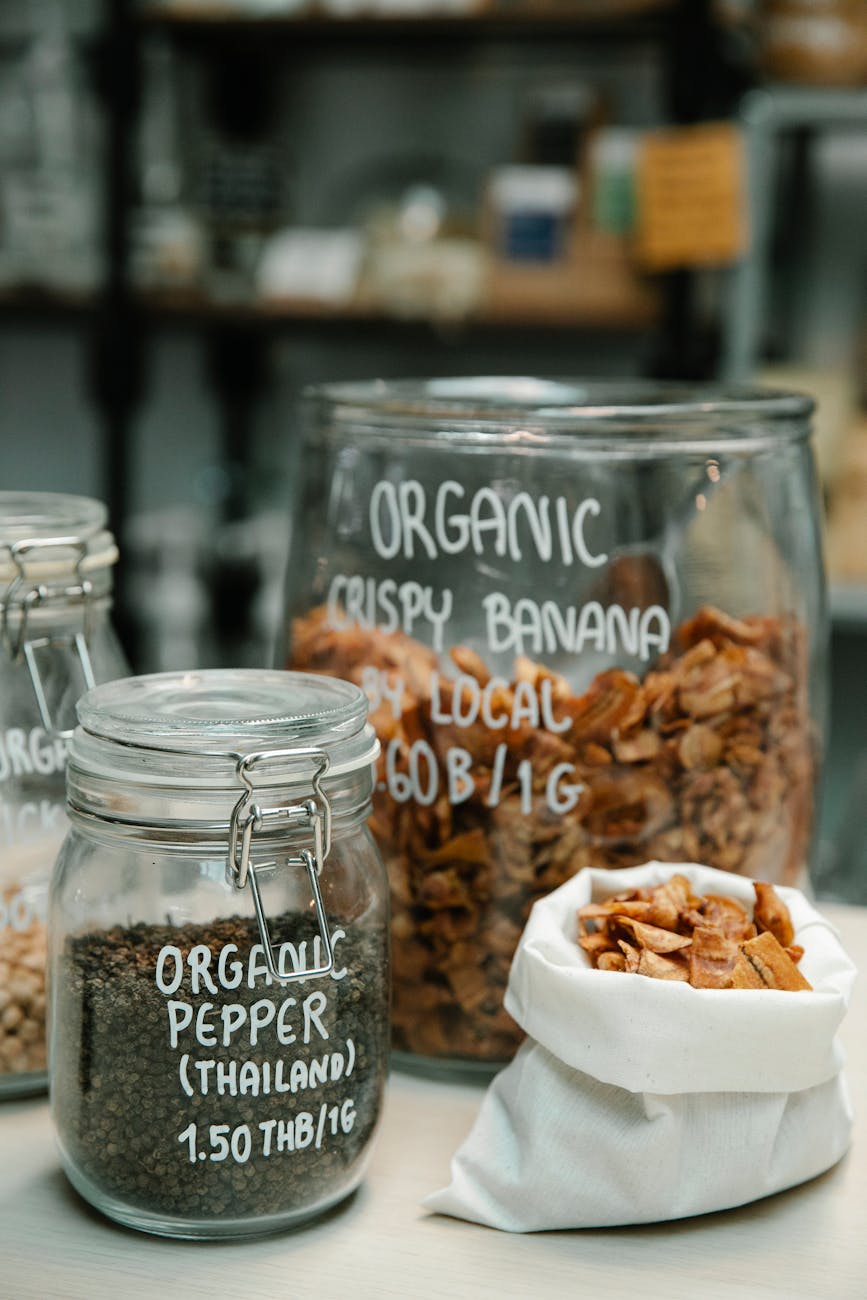When you think about Thailand, images of stunning beaches, vibrant cities, and lush landscapes may come to mind. However, one of the country’s most alluring treasures lies within its rich culinary heritage. It’s a realm filled with distinct flavors, varying ingredients, and local culinary secrets waiting to be unveiled. This blog post offers an enlightening journey into the hidden local ingredients that can elevate your Thai dishes to new heights. Whether you’re a culinary enthusiast or merely a curious reader, understanding these unique components will transform your cooking experience and deepen your appreciation for Thai cuisine.
By exploring the local ingredients that aren’t typically found on grocery store shelves outside of Thailand, you’ll discover how to create authentic dishes that connect you to local culture. Not just a travelogue, this blog post serves as a guide to incorporating these treasures into your cooking at home, providing actionable insights that can truly make your dishes stand out. From the local markets of Chiang Mai to the bustling streets of Bangkok, let’s dive into a world of flavors you may never have known existed.
Table of Contents
- Understanding Thai Cuisine
- Hidden Local Ingredients
- Cooking with Thai Ingredients
- Regional Flavors of Thailand
- Exploring Thai Markets for Ingredients
- Your Next Culinary Adventure Awaits
- Frequently Asked Questions
Understanding Thai Cuisine
The true essence of Thai cuisine goes beyond just its signature dishes like Pad Thai and Tom Yum. It is a harmonious blend of flavors including sweet, sour, salty, and spicy, achieved through a rich tapestry of local ingredients. Thai food isn’t just about taste; it’s a storytelling medium deeply rooted in culture and tradition. Each bite can spark memories of bustling street vendors and tranquil markets. The combination of fragrant herbs, zesty spices, and fresh produce creates an unforgettable culinary experience.
Moreover, appreciating the intricate balance of flavors in Thai cooking helps foster a deeper understanding of its origins. For instance, the nuanced role of fish sauce as a seasoning captures the essence of saltiness, while palm sugar adds that unique touch of sweetness. Imagine yourself strolling through a lively market, the aromas wafting through the air, enticing you to explore new ingredients. This connection to the sourcing of ingredients is vital to not only replicating authentic flavors but also immersing yourself in the culinary narrative of Thailand.
Hidden Local Ingredients
Delving into the lesser-known ingredients found in Thai kitchens unveils a treasure trove of flavors that can dramatically enhance your cooking. One such ingredient is **khao khua**, or roasted rice powder, often used as a thickening agent in dishes like Larb. Its unique nutty flavor can add depth to any meal while providing a texture that enthusiasts enjoy.
Another gem is **makrut lime leaves**, celebrated for their distinct aroma and taste. While often overlooked, these leaves can infuse excellent fragrance into soups and curries, elevating their overall profile. Pair them with fresh herbs like **Thai basil**, which has a subtle anise flavor, to create a harmonious balance in any dish.
Additionally, **cha-om**, or climbing wattle, boasts a unique earthy taste. This ingredient might be found in traditional Thai omelets or as a side dish, offering a nutritious element that many may overlook. Incorporating these hidden local ingredients into your culinary repertoire can transform the ordinary into the extraordinary.
Cooking with Thai Ingredients
With an array of vibrant ingredients at your disposal, stepping into the world of cooking with Thai ingredients can be both an exploration and a creative outlet. You might consider experimenting with **nam pla** (fish sauce) in marinades to amplify the umami quotient or adding **tamarind paste** for a sour punch in your stir-fries. The goal is to play around with these ingredients and uncover their profound impact on flavor profiles.
Start by understanding how to incorporate these ingredients into your favorite recipes. Take your beloved chicken stir-fry, for example. Enhancing it with a dash of **Sriracha** or a sprinkle of **coriander root** will not only intensify the flavors but also guide you toward uncharted culinary territory. The key lies in balance—understanding what each ingredient brings to the table allows you to create dishes that are well-rounded and complex.
Regional Flavors of Thailand
When discussing Thai ingredients, one cannot ignore the regional influences shaping the culinary landscape. Northern Thailand typically emphasizes herbs, greens, and curries, incorporating staples like **sticky rice**. In contrast, Southern Thai cuisine highlights bold, spicy flavors often derived from fresh seafood and rich coconut milk.
Exploring regional differences opens up a treasure chest of flavors. Imagine a vibrant plate of **Som Tum** (green papaya salad) bursting with the punchy heat of chili, mingled with tangy lime and the brininess of fish sauce. Each region has its own storytelling method through culinary creations, using diverse local ingredients that reflect the surrounding environment. Accordingly, learning about these influences will enrich your meals, providing them with context and depth.
Exploring Thai Markets for Ingredients
The journey into the world of Thai cooking wouldn’t be complete without a visit to local markets. Picture yourself meandering through colorful stalls, filled with fresh produce, exotic herbs, and spices that ignite the senses. Market visits are essential for sourcing the freshest ingredients that truly make a difference in the integrity of your dishes.
In markets like the renowned **Chatuchak** in Bangkok, you can find **sawtooth coriander**, **Thai eggplants**, and even local varieties of chilies that are often unattainable elsewhere. Engaging with local vendors fuels an enriching experience and fosters a sense of connection to the cuisine you’re about to create. Furthermore, immersing yourself in this environment helps you appreciate the profound cultural importance behind each ingredient.
Your Next Culinary Adventure Awaits
Incorporating hidden local ingredients into your culinary repertoire not only gives you the power to create authentic Thai dishes but also allows you to experience the joys of travel from your own kitchen. By utilizing the unique flavors and textures discussed, you can transform your meals into vibrant representations of Thai culture that are genuinely satisfying.
Start your journey today by purchasing a few key ingredients from your local Asian market or online. Try cooking with **kaffir lime leaves, galangal,** and **lemongrass** to infuse freshness into your dishes. Each meal can become an adventure as you explore new tastes and uncover the stories behind the flavors. With just a little guidance and creativity, you can create culinary magic that honors the traditions of Thailand.
Frequently Asked Questions
What are some must-have ingredients for authentic Thai cooking?
Key ingredients include fish sauce, tamarind paste, fresh herbs like cilantro and basil, coconut milk, and various chilies. Each contributes to the essential flavor profile found in Thai dishes.
Can I find these ingredients outside of Thailand?
Yes, many authentic Thai ingredients can be found at local Asian grocery stores or ordered online. Items like Thai basil, lemongrass, and kaffir lime leaves are increasingly becoming more accessible worldwide.
How do I store fresh Thai herbs?
Store fresh herbs in cool, dry conditions. Placing them in a glass of water like a bouquet can also extend their shelf life, while others can be wrapped in damp towels and refrigerated to maintain freshness.
What traditional Thai dishes should I try making first?
Start with classics such as Pad Thai, Green Curry, and Tom Yum soup. These dishes encompass a range of flavors while also providing a great introduction to the art of Thai cooking.
How do I adjust the spice level in Thai dishes?
Adjust spice levels by varying the amount of chilies used. For a milder flavor, start with less and gradually increase to suit your palate. Additionally, balancing spicy flavors with sweetness or acidity can help control heat.
Image Credit: Pexels





